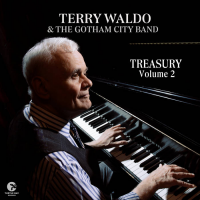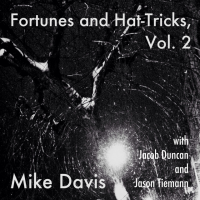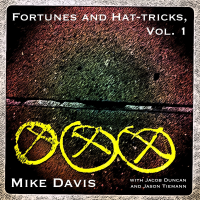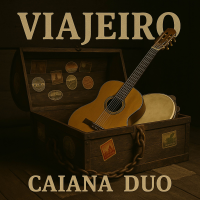Home » Jazz Musicians » Mike Davis
Mike Davis
Mike Davis has lived several distinct musical lives. He has been a student, a serious student of performance and of theory and of composition and of art. He has been a gig warrior, playing multiple shows in multiple styles on different instruments at different venues with different bands on the same day numerous days per week, week after week after week. He has been a record producer, sitting in front of a computer and a rack of mic pres and compressors ЁC recording, editing, mixing, picking on artists until he finally feels they Ў®got itЎҜ. He has been a recording artist, obsessing over whether the material is right, whether the concept is strong, whether the ensemble gets it. He has been a record label owner, pondering how best to market a project and to whom, begging for reviews and hoping they donЎҜt stink, dealing with logistics that are a world away from the music they serve. He has been a band leader, a sideman, an extrovert, a recluse. What follows is a brief history of those lives, some of which are still being lived.
Mike grew up in a small Texas town not far outside of Houston called Rosenberg. Though a music fanatic from a very early age, Mike didnЎҜt begin seriously playing an instrument until around age 14. His very good friend Roger started showing him how to play bass. Before long Mike was playing bass in his high school big band as well as in the Symphonic band. The flood gates opened. He borrowed other instruments from the school and began to practice and experiment. He tried clarinet, trombone, trumpet, french horn, drums, piano. Turns out bass was a great fit, and an ensemble role that made absolute sense to him. He discovered his first great jazz album ЁC Chick CoreaЎҜs Ў®Now He Sings-Now He SobsЎҜ. He studied with his first teachers of bass and theory and jazz ЁC Dave Foster, Eric Late, Shelly Berg, Bruce Dudley. He played gigs in Houston with his first influential peers ЁC Todd Harrison, Mike Wheeler, Harry Shepard, Joe LoCascio, Tony Campisi, Woody Witt, Clark Erickson, Ted Wenglisnski. He fell in love with performing, composing, and recording.
In 1993 Mike began studying jazz at the College of Music at the University of North Texas. There he studied classical bass with Ed Rainbow and Jeff Bradetich, jazz arranging and composing with Paris Rutherford, jazz bass with John Adams, jazz improvisation with Dan Haerle, Fred Hamilton, Mike Steinel and Ed Soph, South Indian classical music theory and performance with Poovalur Srinivasan, tabla and North Indian classical music theory with Ganesh Gupta, Aloke Dutta and later in NYC, Samir Chaterjee. During this time Mike performed regularly with Dave Zoller, Pete Peterson and the Collection Jazz Orchestra, Allison Wedding, Pablo Mayor and many others. He was a regular member of the bands Little Jack Melody and his Young Turks, Sol Caribe and The Great Escape. Most importantly however, he began his original avant-garde ensemble Sand with guitarist Niclas H?glind, saxophonist Jacob Duncan and drummer Chris Michael. This group played every Sunday evening for nearly 2 years at the Cosmic Cup (now called Cosmic Cafe). The owner, Praveen, gave Mike and the guys complete artistic freedom, absolutely no restrictions. It was liberating to say the least. This proved to be a very prolific era for Mike. Sand played a lot of original material from each band member as well as free improvisations. This was the first ensemble with which Mike began to form his idea of spontaneous composition instead of free improvisation, a seed planted which blooms years later in NYC.
Read moreTags
Terry Waldo & the Gotham City Band: Treasury, Volume 2

by Jack Bowers
Like any other handiwork you can name, contemporary jazz did not emerge from a vacuum. It sprang forth from a variety of sources, including but not limited to bebop, cool jazz, swing, trad jazz (Dixieland), blues, stride and perhaps the granddaddy of them all, ragtime. Yes, ragtime. Before there was King Oliver or Louis Armstrong, Duke Ellington or Woody Herman, Charlie Parker or Dizzy Gillespie, Oscar Peterson or John Coltrane, there was ragtime. And for those who surmise that ragtime ...
Continue ReadingTerry Waldo: Treasury Volume 1

by Nicholas F. Mondello
Simply stated, and without hyperbole, Terry Waldo is an American musical treasure. He's also a treasure purveyor. A protЁҰgЁҰ of and mentored by Eubie Blake, Waldo is a player, composer, arranger, author, podcaster, theatrical director, and the noted oracle for ragtime and early American popular music. With Treasury Volume 1 (the first of a three-volume set), Waldo and his all-star Gotham City Band cover ten selections from the embryonic days of American jazz.Things kick this lively session off ...
Continue ReadingTerry Waldo & the Gotham City Band: Treasury Volume 1

by Jack Bowers
Pianist Terry Waldo isn't stuck in the past; he revels in it, as do his eager teammates on Treasury, Vol. 1--the first of three such discourses, according to the album's liner notes--recorded not in jazz's primal era but in May and June 2022 (save for “After You've Gone," recorded in October 2018 with the splendid guest vocalist Veronica Swift). Waldo, a student of jazz from its origins to present-day genres, treads a well-worn path here, reprising bright and enduring themes ...
Continue ReadingHannah Gill: Spooky Jazz. Vol. 2

by Kyle Simpler
In most cases, seasonal albums get shelved after the holiday passes, but Hannah Gill's Spooky Jazz Vol. 2 is an exception. Although it might appear to be a novelty record centered on Halloween-themed songs, the music here transcends the holiday, offering a collection of tunes enjoyable throughout the year. Although the selections here are overall light-hearted and whimsical, this is by no means a comedy record. Much like Slim Gaillard's music, Hannah Gill's material entertains and ...
Continue ReadingThe New Wonders: Steppin' Out

by Jack Bowers
Although the ten songs performed by cornetist Mike Davis' Brooklyn-based septet, The New Wonders, on the group's second album, Steppin' Out, are well removed from new, most have stood the test of time and remained popular with a small yet devoted number of trad jazz enthusiasts, some for a century or more. The New Wonders carry forward a storied tradition that dates at least as far back as the Original Dixieland Jazz Band in the early 1920s and whose best-known ...
Continue ReadingThe New Wonders: Steppin' Out

by Nicholas F. Mondello
There's something effervescent and addictive about the music of the late 1920s. Perhaps it is the fact that technological advancements allow for superior sound quality of the music of Louis Armstrong's Hot Five and Hot Seven, Bix Beiderbecke and Sidney Bechet. Reinforcement from period entertainment such as “Boardwalk Empire," (HBO, 2010-14) “The Great Gatsby," (Warner Brothers, 2013) et al, has opened new ears to the classic stylings. With Steppin' Out, cornetist Mike Davis and his cadre of cats offer a ...
Continue ReadingThe New Wonders: The New Wonders

by Nicholas F. Mondello
In the vast array of jazz styles, if there is one segment which rises phoenix-like over time, it is the music of the first third of the Twentieth Century, the era which saw Louis Armstrong, Bix Beiderbecke, Duke Ellington, and other individuals and bands ignite popularity. With “the New Wonders," NY-based cornetist, vocalist, arranger and ardent student of that early jazz era Mike Davis has pulled together some of New York's finest trad players in a romp and stomp collection ...
Continue ReadingWhere The Cerebral And The Visceral Meet... Fortunes And Hat-Tricks, Vol. 2 by Mike Davis

Source:
Mike Davis
The latest album from Tmpf Records features Mike Davis on double bass, Jacob Duncan on alto saxophone and Jason Tiemann on drums. All songs were spontaneously composed by the trio utilizing two compositional concepts created by Davis. The first he calls “Fortunes," and the second he calls “Hat-tricks." “Fortunes" is a spontaneous compositional concept based on immediate and undiscussed interpretations of evocative song titles. Mike first explored this idea in his band Conundrum around 1999/2000. This band was comprised of ...
read more
Ў°Mike Davis, like Chuck Norris, has no time or use for the shift key. He will shift your brain into a new dimension.Ўұ Ken Youens-Clark
Ў°Davis doesnЎҜt conduct himself like the type of improviser who is trying to dazzle you with his chops or his technique. He comes across as the type of improviser who wants to tell you a story.Ўұ Alex Henderson
Photos
Music
Grooveyard
From: GrooveyardBy Mike Davis
Hat-Trick #8
From: Fortunes and Hat-Tricks, Vol. 2...By Mike Davis
Good Sense Is the Master of Human Life
From: Fortunes and Hat-tricks, Vol. 1By Mike Davis







 Buy Now
Buy Now






